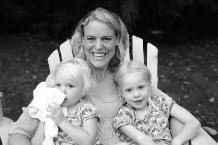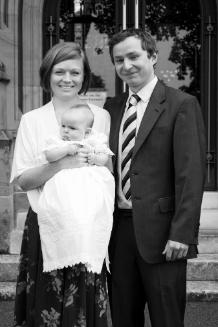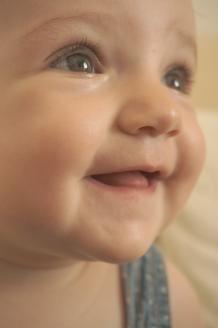Family Friendly Working
We understand that it can sometimes be a challenge to balance work and family, not only for those with children, but also for those of us who have other responsibilities such as looking after elderly relatives. CHE is committed to providing a family friendly work environment, one which is supportive and inclusive, considers caring responsibilities and promotes a healthy work-life balance.
We encourage the use of flexible working arrangements, including:
- Part-time working / change of hours
- Job share and job splitting
- Semester-time only working
- Unpaid leave
- Career breaks
- Flexitime
- Flexible retirement
CHE operates core hours of 10am to 4pm, and (wherever possible) meetings should be arranged to take place during these core hours to support family friendly working practices. We also support a variety of working arrangements for staff, as demonstrated in our case studies below.
Childcare
The University runs salary exchange schemes which offer employees a more flexible way to meet costs of childcare - Nursery Extra and the Childcare Voucher Scheme (replaced by the Government's tax-free childcare scheme).
Further information is available at the following external websites:
Childcare in York
Gov.uk: Benefits for families
Carers
The University recognises that the needs of staff with caring responsibilities are broader than childcare responsibilities, and aims to provide a supportive environment and approach to the needs of carers. HR provide guidance on supporting staff with caring responsibilities. Additional information and links are available for carers on our health and wellbeing pages for staff.
Further support and advice is available from Carers UK and Carers Trust.
University Policies
Maternity leave policy
Paternity leave policy
Shared parental leave policy and unpaid parental leave
Adoption leave policy
Flexible working policy and Flexible work request form
Student pregnancy, maternity, paternity and adoption policy
Case Studies
James Lomas & Jessica Ochalek

When our first child was born in Spring 2019, it goes without saying that our lives changed forever. But what we hadn’t perhaps realised was how much it would affect the way we worked. During the past two years, we’ve realised just how important family-friendly working arrangements are. So much so, we’ve got another child due Spring 2021!
As soon as we started planning leave for our first child, we knew that we wanted to share parental leave, having seen this work so well for colleagues in the department. Jessica took the first six months of leave before returning to work. When Jessica returned to work, James took a couple of months leave. This was discussed with the department, who encouraged us to follow our preferences throughout. The process of arranging this was smooth and we benefitted from being able to discuss matters with and learn from the experiences of our parental leave buddies.
James didn’t anticipate the first couple of months being as hard as they were. He returned to work after taking a week of paternity leave and struggled to balance work and life. During this period, James benefitted from working with understanding colleagues and a family-friendly culture at CHE.
All went to the original plan, more or less, until we started having some difficulties with our child at nursery. We had been set on them being in nursery full-time so that we could continue with our careers as they had been before having a child. We soon discovered this didn’t quite work for us. As such, we revised our hours down to 90% FTE each so that we could spend more time with our child and have them in nursery for fewer days each week. We felt confident that we would be supported by CHE in doing this and we were right.
During the pandemic there have been periods where we have had to look after our child while attempting to work. We have felt supported and our predicament understood throughout.
As with our first child, we are making use of shared parental leave for our second child. This time James will take two blocks of leave: one at the beginning and a second once Jessica returns to work. Despite this being slightly unusual and tricky from a paperwork perspective, we have once again been encouraged to go for what we feel will work best for us.
Marta Soares & Pedro Saramago
Both Marta and Pedro have been part of the University of York since 2007. Marta started as a Research Fellow at the Department of Health Sciences, moving to CHE in 2009. She was recently promoted to Senior Research Fellow. Pedro did the MSc in Health Economics and started his PhD in CHE in 2008. Following his studies, Pedro then became a CHE Research Fellow in 2012.
Our daughter Alice was born in November 2013. CHE supported Marta throughout her pregnancy, by allowing flexible working hours around the common ‘side effects’ of pregnancy – in this way Marta managed to happily work throughout her pregnancy and managed to start her leave only a couple of days before the due date. But it was only after baby Alice was born that we realised how important it is to have support and flexibility at work, especially when family isn’t close by. A key aspect was that Pedro was able to complement the usual 2 weeks of ordinary paternity leave with annual leave, returning to work only in the beginning of January 2014. It was very important that we were together in this early stage of Alice’s life. Marta took 6 and half months of maternity leave, returning to work in June 2014. At that point Pedro started his 3 month additional paternity leave (ADL). To our knowledge Pedro was one of the first dads to ask and have ADL granted by the University. This time was very special for Pedro and Alice.
We both returned to full time work in September 2014, although, we were both able to use annual leave flexibly to accommodate a smooth start at nursery (and also to account for the sickness that often follows starting nursery) until December 2014. Marta decided to start 2015 on a part time basis (80%) so that she spends more time with Alice. CHE were very supportive of this decision.
Overall CHE was key in supporting and promoting a healthy start to our family life and in obtaining a suitable work/life balance – we are extremely grateful for this.
Rowena Jacobs

I started my studies as a PhD student in 1998 at the University of York, supervised by staff in CHE. I then joined CHE as a full-time Research Fellow in 1999 and continued my PhD part-time working on various projects aligned with my research on performance measurement in healthcare. In 2002 I completed my PhD and was promoted in 2003. I was continually encouraged and supported to develop my skills, working on different projects, attending conferences and training courses and submitting applications for research grants in my area of interest, both as CI and as PI. My research interests evolved over time to focus on performance measurement in mental health services and with significant support from senior CHE staff in 2006 I was awarded an NIHR post-doctoral fellowship from the Department of Health to further develop my research in this field. In the same year I was promoted to Senior Research Fellow.
In 2008 I took my first career break for maternity leave and CHE was enormously supportive, keeping in touch with me whilst away and facilitating a smooth transition back into work. Prior to returning in 2009 I requested to work part-time and this was supported by CHE and I have worked part-time ever since. I took a second period of maternity leave in 2010, returning in 2011 and again benefitted from CHE’s supportive culture. I have profited from role models and mentors in the department throughout my career who have supported and encouraged my progress, supported investment in my career through leadership, development and skills training, and in 2014 I was promoted to personal Chair.
There is no doubt that having children changes one’s priorities and combining family life and a career can be complicated, particularly with no extended family nearby to offer support. My husband, who also works in STEMM (medicine), has much less flexible working arrangements than me. The ability to work part-time and flexibly has therefore enabled me to achieve a reasonable balance between work and home demands and while it is often challenging to combine a busy work life with the care of two young children, it is hard to imagine a more supportive environment than CHE in which to do this.
Seb Hinde

I have been a part of the University of York since starting my undergraduate degree in Economics in 2006, going on to do an MSc in Health Economics and joining the Centre for Health Economics as a grade 6 Research Fellow in 2010, being promoted to grade 7 in 2017. Initially the flexibility of CHE was of great help in easing me into an academic career, as it allowed me to work in a way that I found to be most productive rather than requiring a regimented working day. The nature of academic working, with long periods of lone-working and a need for independent and original thinking, can be challenging to many, however, the ability to adapt one’s working hours has been of huge help personally.
In addition, during my wife’s pregnancy in early 2014 this flexibility was hugely helpful to us both, as it allowed me to support her through difficult periods, including a recurring broken foot and severe morning sickness, while maintaining my usual levels of productivity and working hours.
In May 2014 my wife gave birth to our daughter almost two weeks late, after a protracted stay in hospital. Initially I had been concerned that I would not be able to be present for her time in hospital as I was aware that paternity leave would only begin at the time of the birth. However, it was made very easy for me to take leave for the period before the birth and thus stay with my wife.
After my wife returned to work (not with the University) after a year of maternity leave, and has less flexible working arrangements, CHE and the University were very supportive in allowing me to reduce my working hours by one day a week to allow me to ensure a good work-life balance.
Since then we have had a second child in 2019, and while I have returned to full-time research I am still the primary carer for both children due to my wife’s profession as a doctor. The understanding and flexibility of everyone in CHE has made it possible for me to juggle the demands of full time research with the often unpredictability of childcare. The value of this flexibility was especially clear during 2020 when the covid19 pandemic.


